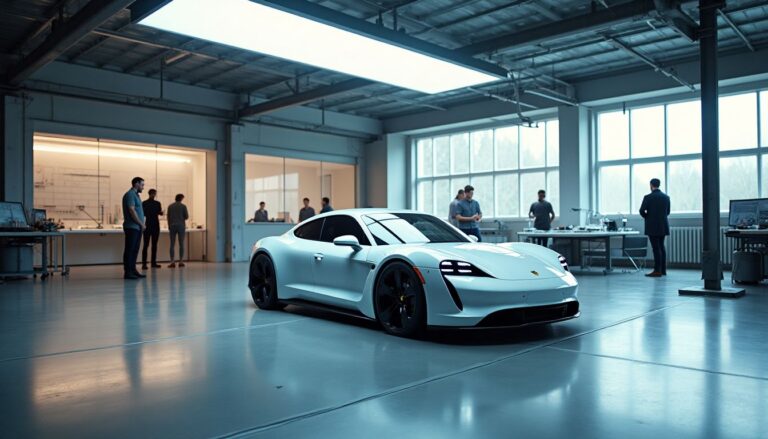Argomenti trattati
Porsche is leading the charge when it comes to weaving sustainability into the fabric of its vehicle development. Carla Römisch, a significant figure in the pre-development of vehicles at Porsche’s research and development hub in Weissach, offers valuable insights into how cutting-edge technologies can notably lessen the environmental impact of their cars. Her perspective underscores a steadfast commitment to responsible practices in a world increasingly grappling with climate change and dwindling resources.
Understanding Vehicle Pre-Development
The pre-development phase at Porsche acts as a creative incubator, where the seeds of future vehicle concepts are sown. This stage is vital, as it allows teams to pinpoint emerging technologies and trends that can evolve into innovative, sustainable designs. Here, initial prototypes are crafted, materials are rigorously tested, and both technical and economic feasibility are assessed. Collaboration is at the heart of the process; teams from various departments, including sustainability strategy, production, and design, come together, often alongside external partners like universities and suppliers. This interdisciplinary approach ensures that a wide array of perspectives is tapped, especially in crucial areas like lightweight construction and safety enhancements.
Porsche’s pre-development process transcends mere innovation; it’s about making strategic choices that align with sustainability objectives. By tackling ecological and economic factors early on, Porsche seeks to optimize resource use, ultimately resulting in products that adhere to strict environmental standards.
The Role of Sustainability in Pre-Development
Embedding sustainability into the vehicle pre-development process is crucial for crafting products that minimize environmental impact. Römisch points out that this stage presents a unique opportunity to embrace resource-efficient solutions right from the outset. Whether it’s about choosing sustainable materials or weaving in new technologies, the sooner these considerations are integrated, the more effectively they can be implemented—leading to significant cost savings and adherence to future regulations.
Porsche employs a comprehensive strategy dubbed the “Holistic Eco Concept,” which emphasizes the entire lifecycle of vehicle materials. This approach covers everything from production to end-of-life recycling. The team meticulously evaluates every component, looking for chances to reduce CO₂ emissions and to incorporate recycled or renewable materials. For example, utilizing by-products like wool from local sheep not only bolsters regional agriculture but also paves the way for innovative material solutions in the automotive sector.
Future Trends in Sustainable Vehicle Development
As Porsche gazes into the future, Römisch highlights several key trends in sustainability and vehicle pre-development. Digitalization and artificial intelligence are set to revolutionize precision in development processes, propelling the creation of eco-friendly products. Moreover, collaboration between manufacturers and recyclers is gaining momentum. By building strong partnerships, Porsche aims to enhance the quality of recycled materials and establish efficient closed-loop systems in its manufacturing processes.
The future of sustainability in vehicle pre-development is not just an added consideration; it’s a crucial opportunity for innovation and market competitiveness. As Porsche continues to stretch the limits of sustainable practices, the integration of eco-friendly materials and recycling initiatives will be fundamental in shaping the next generation of vehicles. Are you ready to see how these advancements will transform the automotive landscape?

